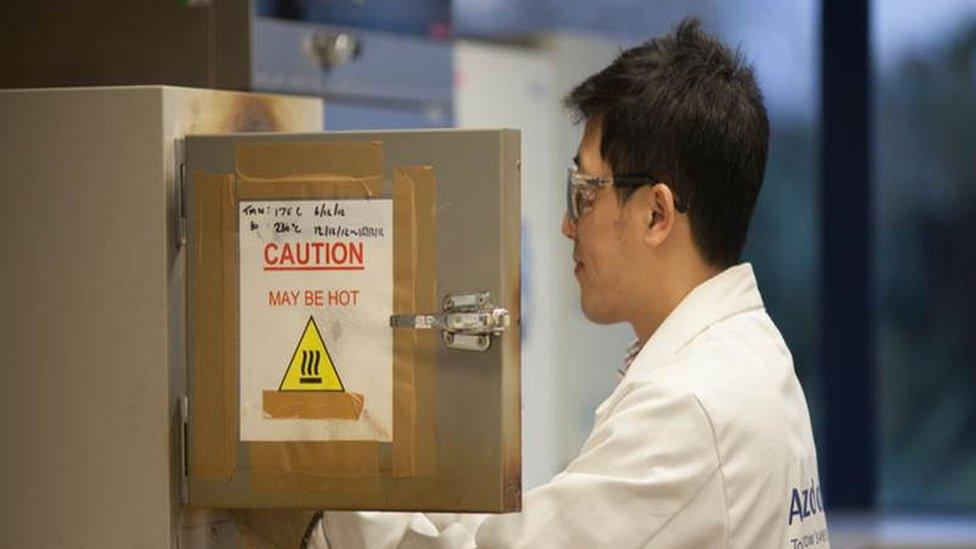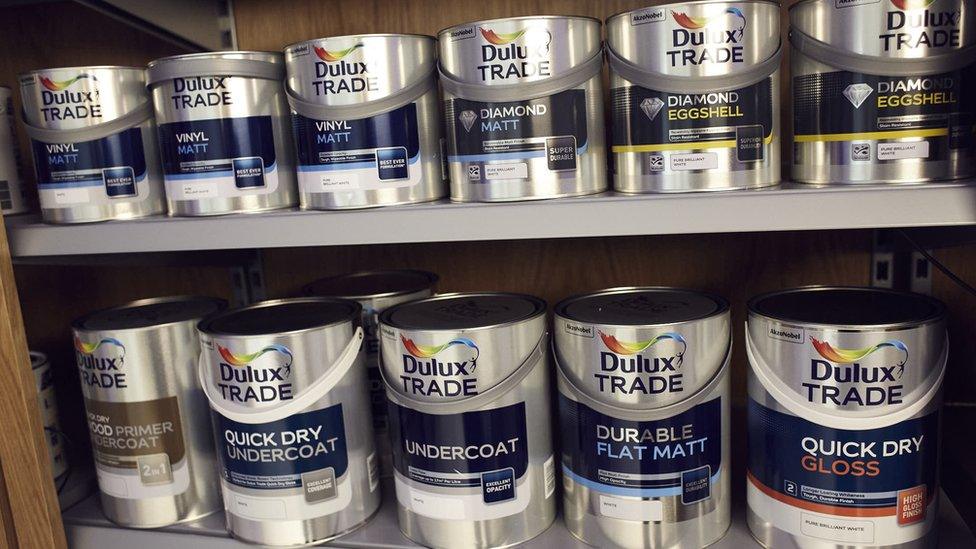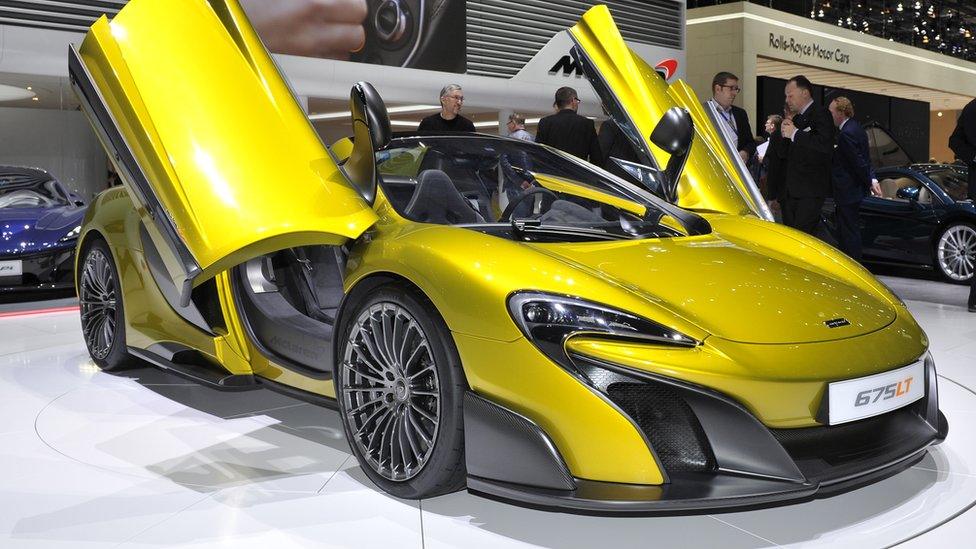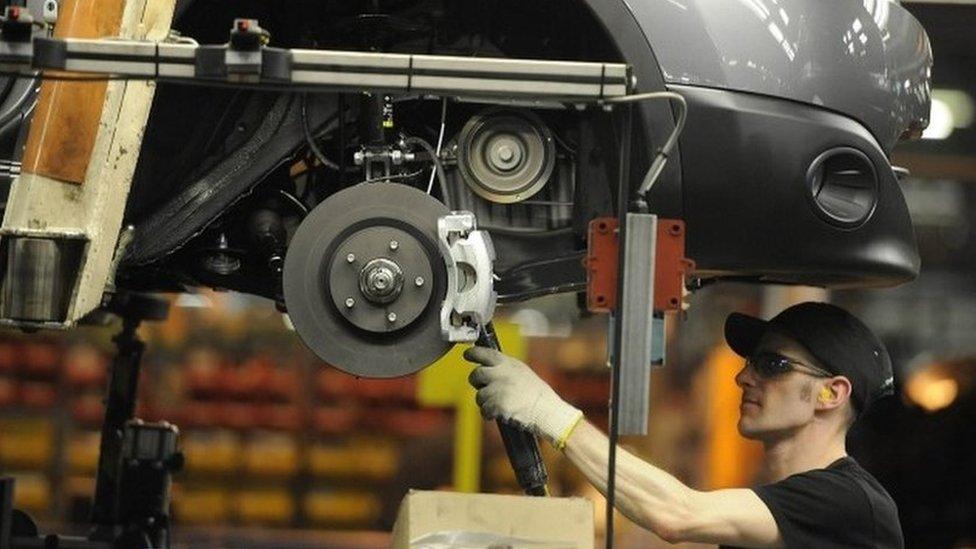Dulux owner invests in UK paint research
- Published

AkzoNobel, the company that makes Dulux and Hammerite paint, is investing €12.6m (£10.7m) in a new research facility in north-eastern England.
The firm, known for its Old English sheepdog mascot, is putting the money into its R&D site in Felling, Gateshead.
As well as household paint, the firm produces specialist coatings for the mining and energy industries.
AkzoNobel said Felling was the "logical spot" for this investment.
The new facility will be able to simulate extreme environments, similar to the North Pole or a fire on an oil rig, to test new products.
"We are creating a kind of a campus of different research and development activities and strengths that we can then use for products that can be sold in the rest of the world," Ton Buchner, AkzoNobel's chief executive, told the BBC.
The company already employs 270 people at its site in Felling. The investment in a UK hub, rather than expanding research facilities elsewhere, would safeguard those jobs.
Research will focus on protection to make hydroelectric dams last longer, coatings to reduce emissions from coal-fired power plants and innovations in fire protection.
Pound effect
A €110m Dulux paint factory in nearby Ashington, Northumbria, is also about to begin production, the firm said.
AkzoNobel's chief executive, Ton Buchner, told the BBC that the vote for Brexit was not an obstacle to further investment in the UK.
The fall in the value of the pound since the EU referendum had "actually made it easier for some of the exporting of the products that are there", he said.

AkzoNobel is based in Amsterdam, and reports its financial results in euros. The fall in the pound, therefore, reduces the amount AkzoNobel earns from the UK.
But if the pound remains weak, then money invested into the UK will go further than in its other major research sites in Singapore and the Netherlands.
However, Mr Buchner said prices could rise for some products in the UK as a result of the devaluation of the pound.
"There is a possibility prices are going up in some of the areas where we sell into the market," he said.
The company's most recent accounts show decorative paints revenue was down 4% in 2016, "mainly due to unfavourable currency effects, in particular the pound sterling and currencies in Latin America".
- Published30 January 2017
- Published8 February 2017

- Published25 January 2017
